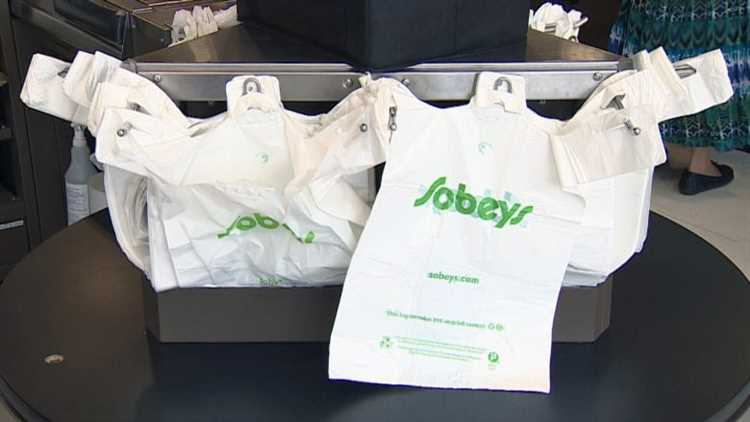
Plastic bags have long been a staple at grocery stores and retail shops around the world. They are convenient, cheap to produce, and seem like a harmless way to transport our purchases. However, as the world becomes more aware of the environmental impact of plastic waste, stores are beginning to move away from plastic bags and adopt more sustainable alternatives.
One of the main reasons for this shift is the devastating impact that plastic bags have on the environment. Plastic bags are not biodegradable and can take hundreds of years to break down. They often end up in landfills, where they can leach harmful chemicals into the soil and water. Additionally, plastic bags are a major source of marine pollution, with millions of them ending up in our oceans each year. Marine animals mistake the bags for food, leading to entanglement and death.
Another reason why stores are ditching plastic bags is the growing demand from consumers for more sustainable options. People are becoming increasingly aware of the negative impact of plastic on the planet and are actively seeking out environmentally friendly alternatives. By offering reusable bags made from materials like cotton or recycled materials, stores can meet the demands of their eco-conscious customers and show their commitment to sustainability.
Furthermore, there is a growing number of regulations and bans on single-use plastic bags in various cities, states, and countries. Governments are recognizing the need to reduce plastic waste and are implementing measures to discourage the use of plastic bags. This has put pressure on stores to find alternative solutions and move away from plastic.
In conclusion, the move away from plastic bags in stores is driven by a combination of environmental concerns, consumer demand for sustainable options, and government regulations. By adopting more sustainable alternatives, stores can help reduce plastic waste and minimize their negative impact on the environment.
- Reasons for Stores to Abandon Plastic Bags
- Environmental Impact
- 1. Pollution
- 2. Wildlife Threat
- 3. Resource Depletion
- 4. Longevity
- Health Concerns
- Impact on Workers
- Safer Alternatives
- Government Regulations
- Consumer Demand
- Preference for Reusable Bags
- Support for Paper Bags
- Cost and Efficiency
- Corporate Social Responsibility
- Environmental Concerns
- Consumer Perception
- Legislation and Regulations
- Question-answer:
- What are the reasons for stores moving away from plastic bags?
- What are the environmental impacts of plastic bags?
- What are the alternatives to plastic bags?
- How are governments and cities promoting the move away from plastic bags?
- What can individuals do to reduce their use of plastic bags?
- Why are stores moving away from plastic bags?
- What are stores using instead of plastic bags?
Reasons for Stores to Abandon Plastic Bags
There are several compelling reasons for stores to abandon the use of plastic bags and adopt more sustainable alternatives:
- Environmental Impact: Plastic bags are a major contributor to pollution. They take hundreds of years to decompose and often end up in landfills, where they release harmful chemicals into the soil and water. By moving away from plastic bags, stores can help reduce the amount of waste that ends up in our environment and protect wildlife.
- Cost Savings: While plastic bags might seem inexpensive, their production and disposal have hidden costs. The extraction and processing of raw materials, such as oil and gas, for plastic bag production contribute to greenhouse gas emissions and climate change. Additionally, stores often have to pay for the disposal of plastic bags, which adds to their expenses. By switching to alternative bag options, stores can save money in the long run.
- Customer Demand: Consumers are becoming increasingly aware of the negative effects of plastic bags on the environment and are actively seeking more eco-friendly options. Stores that prioritize sustainable practices, including the use of reusable or biodegradable bags, can attract environmentally-conscious customers and build a positive brand reputation.
- Legislation and Regulations: Many governments and local authorities are implementing bans or fees on plastic bags to reduce waste and protect the environment. By proactively abandoning plastic bags, stores can stay ahead of regulatory changes and avoid potential penalties or negative publicity.
- Innovation and Competitive Advantage: Transitioning away from plastic bags provides an opportunity for stores to showcase their commitment to sustainability and differentiate themselves from competitors. By embracing alternative bag options, stores can attract new customers who prioritize eco-friendly practices and contribute to a cleaner future.
Overall, abandoning plastic bags is a responsible and forward-thinking choice for stores that want to align with the growing global movement towards sustainability and environmental consciousness.
Environmental Impact
Plastic bags have been a convenient choice for shoppers for many years, but their impact on the environment is severe. The production, use, and disposal of plastic bags contribute to various environmental issues. Here are some of the significant environmental impacts caused by plastic bags:
1. Pollution
Plastic bags are non-biodegradable, meaning that they do not break down naturally over time. When they are improperly disposed of, they can end up in bodies of water or on land, leading to pollution. Plastic bags in water bodies harm marine life and ecosystems by entangling animals and obstructing their natural habitats. On land, plastic bags can clog drainage systems and contribute to floods during heavy rainfall.
2. Wildlife Threat
Marine animals often mistake plastic bags for food, such as jellyfish, and ingest them. Plastic bags can block their digestive systems and cause internal injuries, which can lead to death. Additionally, animals that feed on these marine creatures can also absorb the toxins from plastic bags, which enters the food chain and poses a threat to other wildlife and humans.
3. Resource Depletion
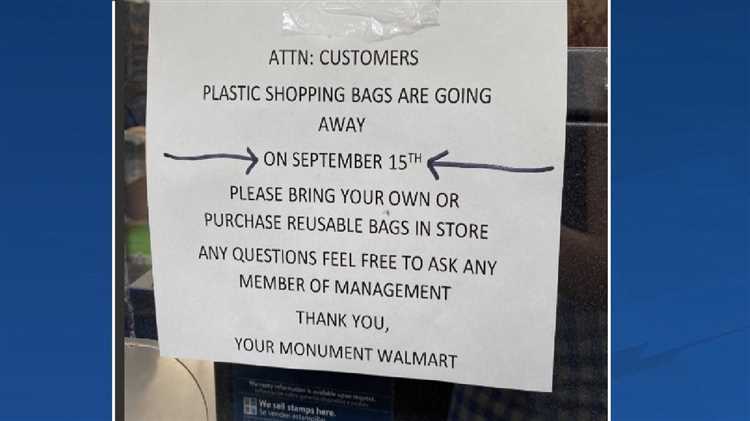
Producing plastic bags requires the extraction of finite resources, such as oil and natural gas. The process of converting these resources into plastic bags also consumes energy and water. By promoting the use of reusable bags and reducing plastic bag demand, we can conserve valuable resources and reduce our dependence on fossil fuels.
4. Longevity
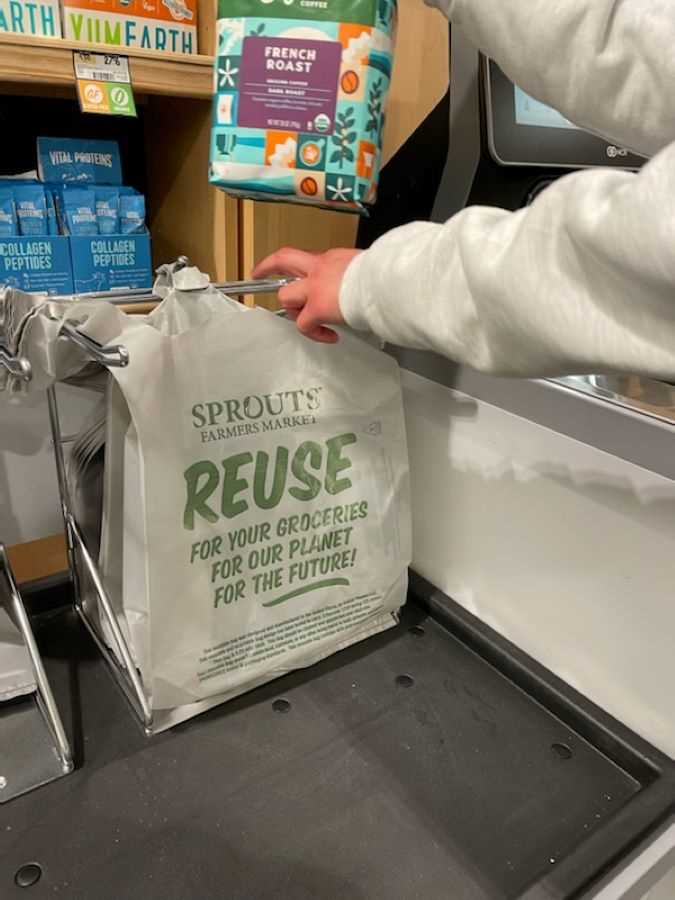
Plastic bags can take hundreds of years to decompose. As a result, they accumulate in landfills, contributing to the growing problem of waste management. The slow degradation of plastic bags also means that they remain in the environment for an extended period, continuously posing a threat to wildlife and ecosystems.
In conclusion, the environmental impact of plastic bags is significant and far-reaching. By transitioning to alternative solutions such as reusable bags or biodegradable options, we can mitigate these negative effects and work towards a more sustainable future.
Health Concerns
Plastic bags have long been a cause for concern when it comes to human health, as they contain chemicals that can pose risks to both the environment and those who are exposed to them. One of the main concerns is the presence of phthalates, which are used in the production of plastic bags to make them more flexible and durable. Phthalates have been linked to a variety of health issues, including reproductive problems, developmental issues in children, and an increased risk of certain types of cancer.
Furthermore, plastic bags can also contain other harmful substances, such as bisphenol A (BPA), which is used in the production of certain types of plastic. BPA is known to mimic the hormone estrogen in the body and has been associated with various health problems, including an increased risk of obesity, diabetes, and cardiovascular disease. In addition to phthalates and BPA, plastic bags can also leach other toxic chemicals into the environment, which can then find their way into the food chain and pose a risk to human health.
Impact on Workers
Not only are plastic bags a concern for consumers, but they also pose a risk to workers in the manufacturing and recycling industries. Workers who are in direct contact with plastic bags on a daily basis may face higher risks of exposure to the harmful chemicals contained in these bags. Whether it’s through the production process or during the recycling of plastic bags, workers can be exposed to a range of toxic substances that can have serious health consequences.
Safer Alternatives
To address these health concerns, many stores are moving away from plastic bags and instead offering more environmentally friendly alternatives. These alternatives include paper bags, which are biodegradable and pose fewer health risks, as well as reusable bags made from materials like cotton or canvas. By using these safer alternatives, stores can reduce the potential risks to both their customers and their workers, while also taking a step towards protecting the environment.
| Health Concerns | Impact on Workers | Safer Alternatives |
|---|---|---|
| Phthalates | Higher risks of exposure | Paper bags |
| BPA | Production and recycling | Reusable bags |
| Other toxic chemicals | Harmful consequences |
Government Regulations
Government regulations play a crucial role in shaping the shift away from plastic bags in stores. Lawmakers in many countries and regions have recognized the environmental impact of plastic bags and have implemented regulations to reduce their usage.
One common government regulation is the implementation of plastic bag fees or taxes. This approach aims to discourage the use of plastic bags by placing a financial burden on consumers. By charging a fee for each plastic bag, governments hope to incentivize individuals to bring their own reusable bags or choose alternative packaging options.
In some cases, governments have gone further by implementing outright bans on plastic bags. These bans make it illegal for stores to provide plastic bags to consumers. Instead, stores must offer alternative options such as paper bags or encourage customers to bring their own bags. This type of regulation is more stringent and aims to completely eliminate the use of plastic bags.
Government regulations also often include requirements for stores to provide information about the environmental impact of plastic bags. This can include displaying signs or labels detailing the harmful effects of plastic bags on ecosystems and wildlife. By increasing awareness, governments hope to educate consumers about the importance of reducing plastic bag usage.
- Plastic bag fees or taxes discourage usage by placing a financial burden on consumers.
- Bans on plastic bags make it illegal for stores to provide them, promoting alternative options.
- Information requirements educate consumers about the environmental impact of plastic bags.
In sum, government regulations are instrumental in driving the move away from plastic bags. By implementing fees, bans, and information requirements, policymakers are working to change consumer behavior and promote more sustainable packaging choices.
Consumer Demand
Consumer demand for alternatives to plastic bags has been steadily increasing in recent years. Growing awareness of the negative environmental impacts of plastic bags, such as their contribution to pollution and harm to wildlife, has led many consumers to seek out more sustainable options.
According to a survey conducted by the Institute for Sustainable Communities, 70% of consumers are concerned about the impact of plastic bags on the environment. This growing concern has driven a shift in consumer preferences, with many people actively choosing to shop at stores that offer alternatives to plastic bags.
Preference for Reusable Bags
One of the most popular alternatives to plastic bags is reusable bags. These bags are typically made from durable materials such as canvas or recycled plastic, and can be used multiple times before needing to be replaced. Many consumers have embraced reusable bags as a way to reduce waste and minimize their environmental footprint.
A study conducted by the Environmental Protection Agency found that on average, a reusable bag can replace the use of 700 disposable plastic bags over its lifetime. This statistic highlights the significant impact that consumer choices can have on reducing plastic waste.
Support for Paper Bags
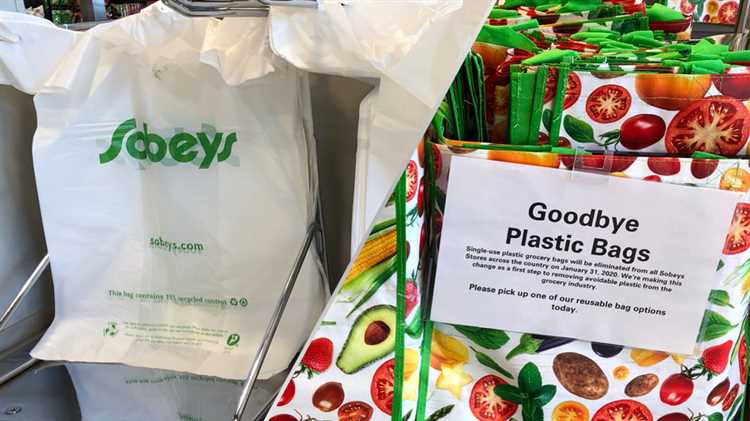
In addition to reusable bags, many consumers also have a preference for paper bags. Paper bags are seen as a more eco-friendly option because they are biodegradable and can be recycled more easily than plastic bags.
Some retailers have responded to consumer demand by offering paper bags as an alternative to plastic. This allows consumers to make a more environmentally conscious choice while still having a convenient way to carry their purchases.
| Pros | Cons |
|---|---|
| Paper bags are biodegradable and can be recycled | Production of paper bags requires more energy and water compared to plastic bags |
| Consumers perceive paper bags as more eco-friendly | Paper bags are not as durable as plastic bags and may tear easily |
| Supports the demand for sustainable packaging | May cost more for retailers to provide paper bags compared to plastic bags |
Overall, consumer demand for alternatives to plastic bags is driving changes in the retail industry. By offering reusable bags and paper bags, stores can attract environmentally conscious consumers and demonstrate their commitment to sustainability.
Cost and Efficiency
Cost considerations
One of the main reasons that stores are moving away from plastic bags is the cost. Plastic bags are inexpensive to produce, but they can be costly to recycle or dispose of. Many states and cities have implemented legislation requiring stores to charge a fee for each plastic bag used or to ban plastic bags altogether. This shift in policy has led stores to explore more cost-effective alternatives.
Efficiency benefits
In addition to cost considerations, stores are also motivated by the potential efficiency benefits of using alternatives to plastic bags. For one, plastic bags are notorious for being flimsy and easily torn, which can slow down the checkout process and result in wasted time for both customers and store employees. By switching to sturdier bags made from materials like canvas or fabric, stores can reduce the number of bagging errors and streamline their operations.
Furthermore, plastic bags are not ideal for carrying heavy or bulky items. They can easily break under the weight, leading to spills and damage. This can create additional overhead costs for stores in terms of clean-up efforts and potential liability for damaged goods. By using more durable bags, stores can minimize these risks and improve the overall efficiency of their operations.
In conclusion, the shift away from plastic bags is driven by both cost considerations and the desire for greater efficiency. By adopting alternative bagging options, stores can save money on recycling or disposal fees while also streamlining their checkout process and reducing the risk of damaged goods.
Corporate Social Responsibility
Corporate social responsibility (CSR) refers to an organization’s duty to operate in an ethical and sustainable manner, taking into consideration the social, environmental, and economic impacts of its actions. In recent years, consumers have become more aware of the importance of CSR and have started to demand that businesses take responsibility for their impact on the planet.
Environmental Concerns
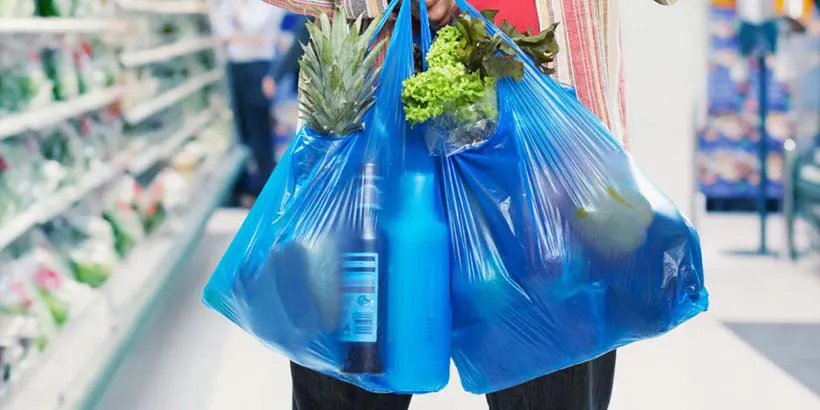
One of the main aspects of CSR is addressing environmental concerns. Many businesses are now taking steps to reduce their carbon footprint and decrease their use of non-renewable resources. This includes efforts to reduce plastic waste, such as moving away from plastic bags.
By eliminating or reducing the use of plastic bags, stores can significantly reduce the amount of plastic waste that ends up in landfills and oceans. This not only helps protect the environment but also demonstrates to consumers that the company is committed to sustainability.
Consumer Perception
Companies that prioritize CSR are seen as more trustworthy and socially responsible by consumers. By taking action to reduce plastic waste, stores can enhance their brand image and attract environmentally-conscious customers who are more likely to support businesses that align with their values.
Moreover, the increased consumer awareness of CSR has made it essential for businesses to address social and environmental issues. Neglecting these concerns can result in reputational damage and a loss of customers.
By adopting more sustainable practices, including the reduction of plastic bag usage, stores can contribute to a positive image and build customer loyalty.
Legislation and Regulations
In addition to consumer demand, legislation and regulations have also played a role in the movement away from plastic bags. Governments all around the world are implementing measures to reduce plastic waste and encourage businesses to adopt more sustainable alternatives.
Some countries have implemented bans or taxes on plastic bags, while others have introduced incentives for businesses using eco-friendly packaging. By complying with these regulations and taking proactive measures to reduce plastic waste, stores can avoid fines and contribute to a healthier environment.
In conclusion, the corporate social responsibility movement has been a driving force behind stores moving away from plastic bags. The desire to protect the environment, meet consumer expectations, and comply with regulations has pushed businesses to adopt more sustainable practices, ultimately leading to a reduction in plastic waste and a positive impact on the planet.
Question-answer:
What are the reasons for stores moving away from plastic bags?
There are several reasons why stores are moving away from plastic bags. First, plastic bags contribute to environmental pollution and harm wildlife. Second, plastic bags take hundreds of years to decompose. Third, plastic bags are made from non-renewable resources like oil. Finally, many countries and cities are implementing bans or fees on plastic bags, making it economically viable for stores to switch to alternatives.
What are the environmental impacts of plastic bags?
Plastic bags have numerous negative environmental impacts. They contribute to pollution, as they are often improperly disposed of and end up in rivers, oceans, and landfills. Plastic bags are also harmful to wildlife. Animals can mistake them for food or become entangled in them, leading to injury or death. Additionally, the production of plastic bags requires the use of fossil fuels, and they can take hundreds of years to decompose.
What are the alternatives to plastic bags?
There are several alternatives to plastic bags. Many stores are opting for paper bags, which are biodegradable and can be recycled. Some stores are also offering reusable bags made from materials like cotton or jute. These reusable bags are durable and can be used multiple times, reducing the need for single-use plastic bags. Some stores are even encouraging customers to bring their own bags by offering incentives or discounts.
How are governments and cities promoting the move away from plastic bags?
Governments and cities are implementing various strategies to promote the move away from plastic bags. Some are imposing bans or fees on single-use plastic bags to encourage consumers to use alternatives. Others are implementing recycling programs to ensure that plastic bags are disposed of properly. Additionally, some governments are providing financial incentives or grants to businesses that make the switch to more environmentally friendly packaging options.
What can individuals do to reduce their use of plastic bags?
There are several ways individuals can reduce their use of plastic bags. First, they can bring their own reusable bags when shopping. Keeping a few reusable bags in the car or by the front door can make it easy to remember to bring them along. Second, individuals can opt for paper bags when available, as these are biodegradable and can be recycled. Lastly, individuals can support stores that have made the switch away from plastic bags and actively avoid stores that still offer them.
Why are stores moving away from plastic bags?
Stores are moving away from plastic bags because of the negative impact they have on the environment. Plastic bags take a long time to decompose and often end up in landfills or polluting our oceans and other bodies of water. Additionally, the production of plastic bags requires a significant amount of oil and energy, contributing to greenhouse gas emissions and climate change.
What are stores using instead of plastic bags?
Stores are using various alternatives to plastic bags, such as paper bags, reusable cloth bags, and compostable bags. These alternatives are more environmentally friendly because they are biodegradable, require less energy to produce, and can be recycled or reused multiple times. Some stores also encourage customers to bring their own bags by offering discounts or rewards for doing so.